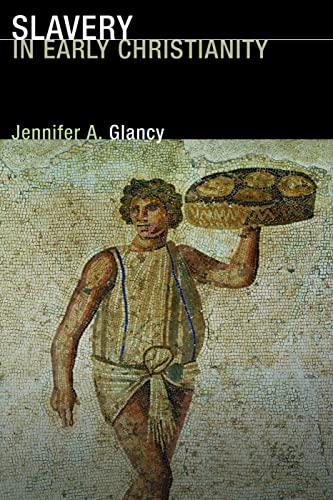Not so great courses
Several months ago, I purchased a course on ancient Christianity through audible.com. You might find the title intriguing (I know I did) — From Jesus to Christianity: A History of the Early Church — which reminded me of Paula Fredriksen’s book, From Jesus to Christ: The Origins of the New Testament Images of Christ. In no other respect do these works resemble each other, not in clarity, accuracy, or depth.

Thomas Madden may be an expert in medieval and renaissance studies, but his understanding of the Ancient Near East and early Christianity is superficial and slanted toward a confessional, orthodox, if not specifically Roman Catholic, viewpoint. As we’ve said many times here, bias does not inherently make somebody wrong. We all have particular points of view; however, we should acknowledge other points of view and strive to present them fairly. Madden, unfortunately, seems completely unaware of other perspectives.
When I buy courses and books, in the back of my mind I hope to find something new and interesting that I can blog about. However, as I alluded to above, Madden’s course is so superficial as to be devoid of blog-fodder — except for a few outright mistakes that made me shake my head and grumble. (I wonder how crazy I look, walking through airports, earbuds in place, muttering softly to myself in disgust — like Popeye in a Max Fleischer cartoon.)

As a brief aside, we should note that Madden’s wretched course is emblematic of a trend in publishing. The latest history and religion courses released by The Great Courses (formerly The Teaching Company) and The Modern Scholar (part of Recorded Books, LLC) are more conservative than ever — a comfort to a public that prefers confirmation of its beliefs over learning. Listeners to these courses will learn, to their relief, that Paul certainly wrote all of the epistles attributed to him and that the Documentary Hypothesis is false. Madden, a frequent contributor to such publications as The National Review and Crisis Magazine, as well as an apologist for the Crusades and the Inquisition, fits right in.
Comforting the comfortable
Given the underlying purpose of Madden’s course on the history of the church — namely, to comfort the faithful laity by regurgitating the party line — nothing should have surprised me. I thought I’d heard nearly all of the pious lies proffered by Christian apologists, but I wasn’t prepared for this one.
Unlike other religions, Christianity held that all people, men or women, free or slaves, were the same in God’s eyes. And so, as a result of that, all were worthy of respect and love and charity. Someone who was a Christian who was a very powerful noble was the brother of someone who was a Christian who was a day laborer.
Unlike any other ideologies at the time, Christianity also considered slavery — the institution of slavery — to be inherently wrong. And it’s important to remember that although today we think of slavery as self-evidently wrong, no ideologies, no civilizations believed that in the ancient world. Slavery was thought to be a self-evidently right institutions. And so Christianity broke with that by its insistence that it was wrong. Christians themselves were enjoined to free their slaves — although Christians did not actually work to end the institution of slavery, partially because the did not have the authority to do that in the first place, and also partly because although they considered it to be immoral, slavery was still legal and it had been ordained by the state, and Christ and St. Paul had commanded their followers to be respectful for state leaders and to pray for them. (From Jesus to Christianity, Lecture 4, emphasis mine)
Not even the Catholic Encyclopedia goes so far as to invent an imaginary past in which Christians taught that slavery is “inherently wrong” and that Church Fathers urged Christian slaveholders to free their slaves. Instead, it offers a facile argument for the maintenance of the status quo:
To reproach the Church of the first ages with not having condemned slavery in principle, and with having tolerated it in fact, is to blame it for not having let loose a frightful revolution, in which, perhaps, all civilization would have perished with Roman society.
Well, goodness me. We wouldn’t want all civilization to perish, would we? No apologist argument would be complete without a well-crafted false dilemma.
Bodies in bondage

Whether Madden knows he’s peddling false information or he doesn’t and is in fact just another incompetent academic, makes little difference in the long run. People under his tutelage will learn that early Christians believed that slavery was inherently wrong and that owners were encouraged to free their slaves. And because this happy story reinforces what people want to believe about Christianity, they’ll continue to believe it, even when confronted with evidence to the contrary.
Still, I have to thank Madden for prodding me to search for recent works on the subject of slavery in early Christianity. That search led me to two extraordinary books by Jennifer A. Glancy. The first, Slavery in Early Christianity (2006, Fortress Press), examines the attitudes and beliefs of early Christians with respect to slavery. The second, Slavery As Moral Problem: In the Early Church and Today (2011, Fortress Press), takes on the thorny issue of how to make sense of the fact that early Christians owned slaves when today we see the practice as morally wrong.
In the next few posts, I’ll be covering the problem of slavery and Christianity. In many ways, the practice was more terrible than we can imagine. But since it was a vital part of ancient Mediterranean cultures, not understanding it or, worse, white-washing it, will distort our understanding of early Christians and the world in which they lived.
If you enjoyed this post, please consider donating to Vridar. Thanks!

I remember reading an academic PDF, called “Hatred Disguised as Love” which deals with this exact subject, and drags the early church’s teachings on sexual morality (and “correctness”) into the fray. The reason is, there is one ugly fact about ancient Mediterranean slavery: slaves had to sexually service their masters, regardless of each slave’s gender.
There can be little doubt that the author of Colossians has this in mind when he commands slaves to obey their masters in *everything*.
That’s an important point. As Glancy points out, for slaves there were no boundaries. The slave’s body and life were not his or her own.
So Paul’s doctrine that all followers of Christ were part of the same body raises some very uncomfortable questions.
Ditto his doctrine that the same followers of Christ were not their own persons, that they “were bought at a price.”
15. Know ye not that your bodies are the members of Christ? shall I then take the members of Christ, and make them the members of an harlot? God forbid.
16. What? know ye not that he which is joined to an harlot is one body? for two, saith he, shall be one flesh.
17. But he that is joined unto the Lord is one spirit.
(1 Cor. 6:15-17, KJV)
So what could a slave, who had no control over the “joining” of his or her body to his master, do?
That’s a good question, for there’s no indication that Paul even objected to the Roman institution of slavery. He even mandated that slaves their masters as to the Lord.
Colossians 3:22-5
Not all that confusing if you consider that in the society, slaves were simply not regarded as moral agents. A prohibition on sexual immorality would have implications for a slave only in his or her dealings with other slaves. Not having any agency in interactions with the freeborn and certainly not with one’s master made any such prohibition moot in cases of forced sexual service.
Good posts Tim. Looking forward to part 3.
When talking of The Teaching Company, I think you are being a little hard on them (as mild and vague as you were).
I first got really turned on to New Testament studies through Bart Ehrman’s TeachCo courses (they are really good as an intro to the subject for beginners). And they are absolutely brutal in their presentation of Christianity (as well they should be).
But guess what? Not everyone wants the same thing. There are a lot of Christians out there who want a less brutal survey of their religion, and it is simple economics that a company like The Teaching Company will provide offerings to the millions of Christians out there. I am someone who thinks that Christianity is totally fictional, from the ground up. And yet, I also enjoy most of Catholic Luke Timothy Johnson’s Teaching Company courses (I have a long drive to work every day, and you can only listen to the Ehrman courses so many times . . .).
In Johnson’s course on Paul (which I assume you are alluding to), yes, he does say that HE thinks all of the Pauline letters are by Paul. But he makes it VERY clear that he is one of the few scholars on the planet who feels this way ,and that it is his OPINION. He jokingly quotes his wife as saying that he is the ONLY person who feels this way. This is not an attempt to shield the sheeple from the truth, or to intentionally deceive them. Simply put, on a long drive, I am glad to have LTJ’s courses to listen to when I’ve already listened to Bart Ehrman 20 times.
The Teaching Company courses are pretty damn wonderful for some people who drive a lot (or whatever). They are infinitely better than almost anything on TV, whatever the subject. For the most part they are pretty accurate, but this company is interested in selling to target audiences, and that means giving that audience what it wants in a few places like religion. I would have to guess that many Christians who participate in their customer surveys of what kind of course they want suggested some Christian-friendly courses for obvious reasons.
Do not expect the entire spectrum of society to conform to strict academic standards . . . economics and entertainment are part of this society.
You make some good points. I know what you mean about listening to Bart too many times. You can only take that sing-song contralto voice for so long.
And yes, I suppose I should cut LTJ some slack. He does admit he’s in the minority. However, I think if you’re in the minority, you owe it to your students to present the mainstream case as thoroughly and as well as possible. In the cases of Luke Timothy Johnson and Gary Rendsburg, we’re not getting the full story on the consensus and why so many scholars buy into that consensus.
On a similar point, if you took all of Bart’s audio courses, you’d learn an awful lot, but the material really is skewed toward his perspective. You might never know that many scholars don’t agree that Jesus was an apocalyptic prophet. I appreciate that Bart has a point of view, and that he thinks he’s right. If you took a vote among scholars, he might be in the majority. That’s nice. But you’re not getting the full picture of the scholarly range of opinion regarding the HJ.
You may think John Dominic Crossan and Burton Mack are wrong, but it’s worth knowing why they think the way they do. Bart too often brushes them aside without doing justice to the opposition.
Bart’s point of view, I suppose, could be considered liberal, but he seems very middle-of-the-road to me. At any rate, I do think that recent courses in the humanities have been getting more and more conservative, but I recognize they’re trying to sell a product.